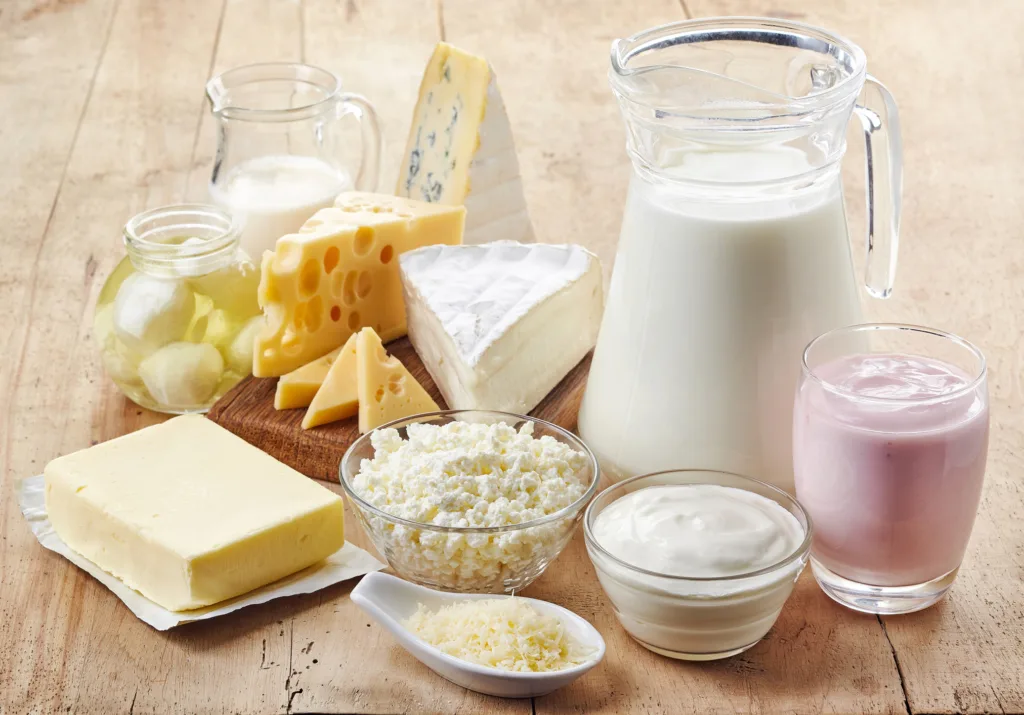The role of dairy in weight loss has long been a topic of controversy and debate. On one hand, dairy products like milk, cheese, and yogurt contain beneficial nutrients like calcium, vitamin D, and protein that are important for health. On the other hand, some fear dairy may increase calories and fat, potentially hindering efforts to lose weight.
So what’s the real deal on dairy and weight loss? Let’s explore the science, benefits, and concerns to unravel the dairy dilemma once and for all.
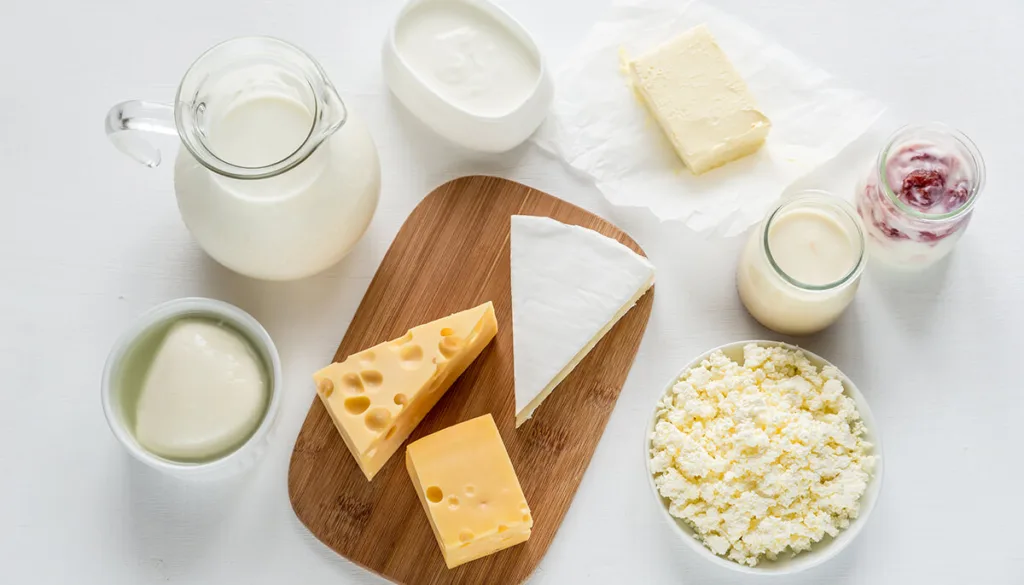
The Dairy Debate
Dairy has faced scrutiny over the years when it comes to its impact on weight management. Critics argue that the calories and fat found in most dairy foods promote weight gain, not weight loss. Some believe that dairy increases inflammation in the body which can stall fat burning. Certain individuals are also intolerant to lactose, the natural sugar in dairy, causing digestive issues.
With these concerns in mind, some diets like the Paleo diet restrict dairy intake. Meanwhile, others in the wellness world sing dairy’s praises when it comes to supporting a lean, toned physique. They argue that dairy provides satiating protein, metabolism-boosting calcium, and bioactive compounds that may increase fat breakdown.
Clearly, the impact of dairy on weight is complex, with convincing arguments on both sides. The influence likely depends on the individual, as well as the type and amount of dairy consumed. By evaluating the latest evidence, we can determine if dairy helps or hinders our ability to shed excess pounds.
Dairy’s Nutritional Profile
To understand how dairy may or may not aid weight loss, let’s first look at its nutritional makeup:
- Protein: Dairy products contain high-quality protein, providing all essential amino acids needed to build and maintain muscle. Protein is very satiating and helps preserve or even build lean muscle mass during weight loss.
- Calcium: Dairy is one of the richest sources of dietary calcium. Calcium may promote fat breakdown, improve metabolism, and suppress appetite.
- Vitamin D: This fat-soluble vitamin is added to many dairy products. Vitamin D optimizes calcium absorption and may support weight loss.
- Fats: Dairy contains a blend of saturated, monounsaturated, and polyunsaturated fatty acids. The fatty acid profile varies based on the source and type of dairy food.
- Carbohydrates: Milk naturally contains the sugar lactose, while yogurt and cheese also provide some carbohydrates.
- Bioactive compounds: Dairy foods contain various peptides and nutrients that may provide additional anti-obesity effects.
As you can see, dairy provides an array of beneficial nutrients. But it also contains varying amounts of calories and fat. This brings us to the big question…
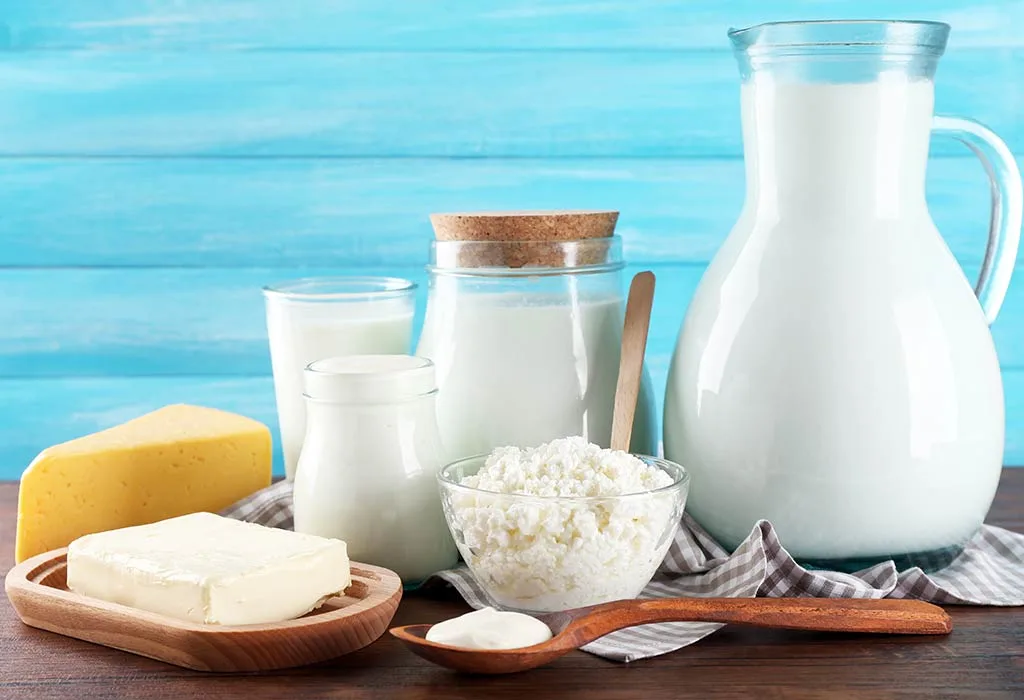
Dairy and Weight Loss: The Science
Numerous studies have aimed to determine if dairy supports or sabotages fat loss efforts. Let’s unpack what the science has to say:
- A recent review in Advances in Nutrition analyzed 22 randomized controlled trials on dairy and weight management. It found that dairy had an overall positive effect, promoting reduced body fat and waist circumference compared to control groups.
- A study in Obesity Research found that three daily servings of milk or cheese significantly accelerated weight and fat loss compared to a low-dairy diet.
- However, a few studies like one in the European Journal of Nutrition showed no significant difference in weight loss between high and low dairy diets.
- Interestingly, a study in the American Journal of Clinical Nutrition revealed that while dairy fat itself did not affect weight loss, calcium in dairy foods did enhance weight loss efforts.
The evidence overall suggests dairy can provide modest benefits for fat loss, especially when consumed in recommended amounts as part of a balanced diet and active lifestyle. The rich calcium content of dairy seems to be a key player. But calories still count, which brings us to our next point.
Calories and Dairy Consumption
Like any food, dairy can contribute to weight gain if consumed in excess. Whole milk, cheese, cream, and butter pack a hefty calorie and fat load into small serving sizes. Eating too much of these high-calorie dairy foods could tip the scales in the wrong direction.
The key is sticking to recommended portions and low or nonfat dairy options if trying to slim down. The USDA Dietary Guidelines for Americans recommends three daily servings of low fat or nonfat dairy foods. This amounts to about three cups total.
This moderate dairy intake clocking in around 300-400 calories is shown to benefit, not hinder, weight control for most people. It all comes down to calories in versus calories out. As part of a calories-conscious diet, dairy may help shift the balance for successful weight loss.
Protein Power
One of the major weight loss advantages dairy brings to the table is its high protein content. Protein is arguably the king of nutrients when you’re aiming to shed pounds. Here’s how protein in dairy supports weight loss:
- Keeps you feeling full. Research shows that protein is the most satiating macronutrient compared to fat and carbohydrates. This means high-protein dairy foods can increase feelings of fullness, reducing hunger and subsequent calorie intake.
- Maintains or builds lean muscle mass. Diets higher in protein help minimize muscle loss as the body sheds fat. Strength training further maximizes this muscle-sparing effect during weight loss.
- Requires more calories to digest than carbs or fat. Your body uses extra energy to metabolize protein, creating a slight boost to your metabolism.
- Helps regulate appetite hormones. Higher protein diets are associated with increased satiety hormones like PYY and reduced hunger hormones like ghrelin.
By providing about 8 grams of filling protein per serving, dairy foods like milk, Greek yogurt, and cottage cheese can be excellent secret weapons for weight loss through protein power.
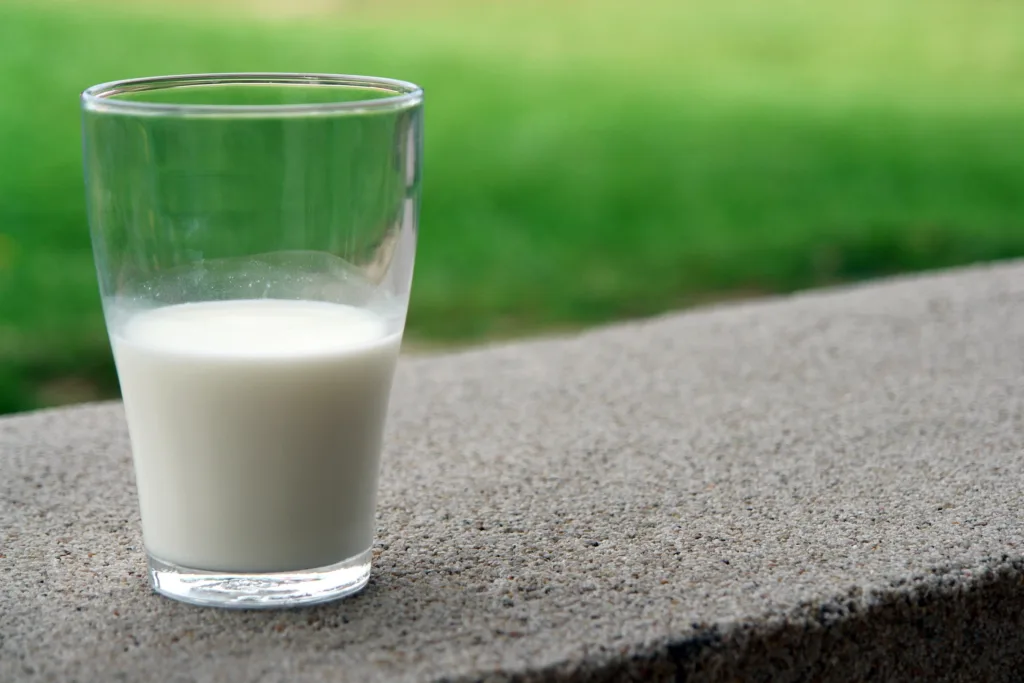
Calcium Connection
Emerging research highlights the potential “fat-burning” effects of calcium, a mineral found abundantly in most dairy products. Here are some of the ways calcium may optimize body composition:
- Stimulates lipolysis. Calcium increases lipase activity in fat cells, accelerating the breakdown of triglycerides into free fatty acids for energy.
- Supports fat oxidation. Research indicates dietary calcium enhances fat oxidation and thermogenesis, helping convert more fat into fuel.
- Inhibits fat absorption. Calcium precipitates fatty acids in the digestive tract, blocking some fat absorption.
- Regulates appetite hormones. Calcium intake is linked to lower levels of the appetite stimulant ghrelin.
- Provides metabolic benefits. Calcium improves glucose tolerance, insulin sensitivity, and overall metabolic profile.
While more research is needed, calcium does appear to directly and indirectly ramp up fat burning. Adequate calcium intake through low fat dairy products may help give your metabolism an edge for shedding weight.
Choosing the Right Dairy
Not all dairy products are created equal when it comes to nutritional value. Some support weight loss goals, while others may sabotage them. Consider these tips for selecting the most diet-friendly dairy options:
- Opt for low fat or nonfat. Choose nonfat Greek yogurt, nonfat milk, and low-fat cheese for the biggest nutrition payoff.
- Watch your portions. Stick to recommended serving sizes instead of overdoing it on high-calorie cheeses.
- Enjoy as whole foods. Greater benefits come from high protein Greek yogurt or milk versus isolated dairy proteins.
- Read labels. Pick items lowest in added sugars like certain flavored yogurts and chocolate milk.
- Go plain. Sweetened or flavored dairy products mean extra calories from added sugars.
- Choose organic. When possible, select organic dairy from pasture-raised cows for higher omega-3s.
Making smart dairy choices tailored to your weight loss goals and dietary needs can help you unlock the full benefits.
Dairy Alternatives
For those who need or prefer to avoid dairy altogether, quality non-dairy alternatives abound. Here are some nutritious dairy-free choices that may support weight loss:
- Unsweetened nut milks. Almond, coconut, cashew and soy milk offer creamy texture with fewer carbs and a healthy plant-based fat profile.
- Soy yogurt. Soy yogurts made from whole soybeans provide protein, probiotics, and nutritional benefits.
- Edamame. These immature soybeans are rich in plant-based protein, fiber, and antioxidants.
- Tofu. Firm tofu contains plant protein and makes a versatile high protein dairy substitute.
- Hemp seeds. Nutritious hemp delivers protein, omega-3s, and minerals with no dairy required.
- Beans/lentils. Legumes give a protein boost and promote satiety without dairy.
- Leafy greens. Dark leafy greens are loaded with calcium and vitamins like vitamin D.
With a little creativity, you can reap many of dairy’s nutritional benefits from non-dairy foods.
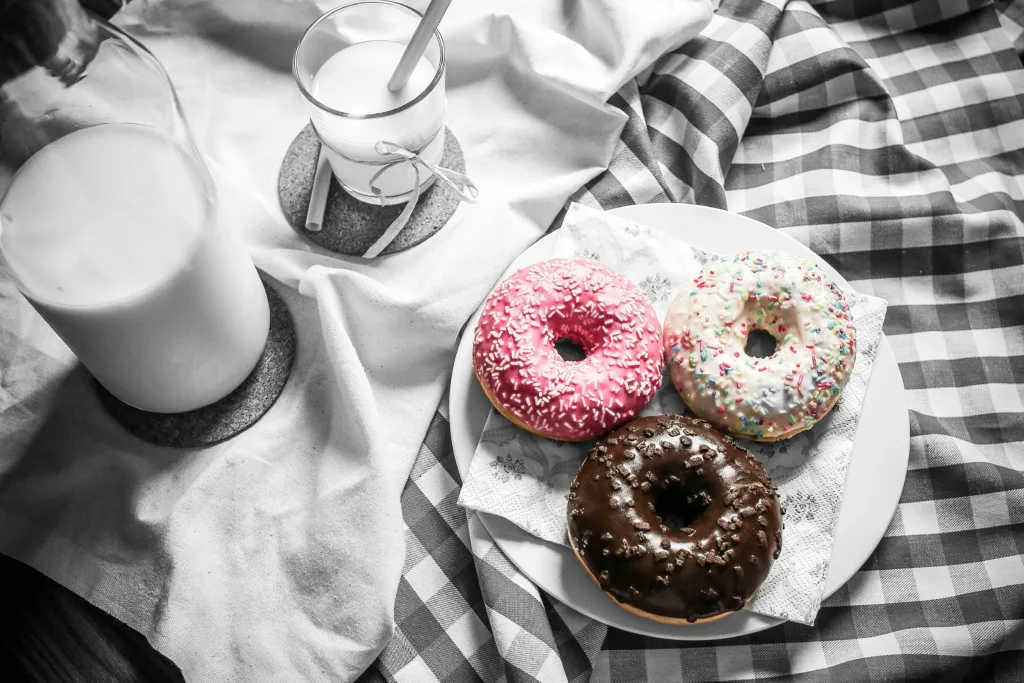
Dairy and Gut Health
Digestive wellness affects weight in big ways. Could dairy be hurting or helping your gut health? On the anti-dairy side:
- Milk sugar intolerance is common, causing gas, bloating, and diarrhea in lactose intolerant individuals.
- Some associate dairy with increased inflammation and phlegm production.
- Natural hormones in conventional dairy may influence health.
On the pro dairy side:
- Fermented dairy with live cultures like yogurt and kefir boosts beneficial probiotics.
- Dairy protein and calcium nourish intestinal cells and boost immunity.
- CLA and other fatty acids in dairy may reduce gut inflammation.
The interaction between dairy and gut health depends on the individual. Trial and error is key to determining if dairy aggravates or assists your digestive system and weight goals.
Practical Tips for Incorporating Dairy
If you want to harness the weight loss potential of dairy while avoiding pitfalls, try these simple tips:
- Enjoy Greek yogurt. Its thick texture and high protein content promotes satiety. Add fresh fruit, nuts, or seeds.
- Have cottage cheese. The soft curds supply sustained protein power. Top your cottage cheese with tomato and avocado.
- Drink plain milk. Sip skim or low-fat milk post workout or as part of balanced meals to boost protein intake.
- Add cheese creatively. Use feta, parmesan, goat cheese, etc. to add flavor and protein to salads, eggs, vegetables or grains.
- Make smoothies. Blend milk, Greek yogurt, or kefir with your favorite fruits for a nutritious, portable breakfast or snack.
- Use nonfat milk in recipes. When baking or cooking, replace some butter or oil in recipes with skim milk for a low calorie swap.
- Limit higher fat dairy. While beneficial, steer clear of going overboard on full-fat cheese, cream, and other high-calorie dairy items.
The Final Verdict: Dairy’s Place in Your Weight Loss Journey
The debate around dairy and weight loss will surely continue as more research unfolds. But the majority of current evidence suggests dairy foods can be a beneficial component of a body transformation plan.
Rich in protein, calcium, and other nutrients, dairy foods like Greek yogurt, milk, and cheese may support fat loss and muscle building when consumed in moderate amounts as part of a balanced diet. Just be mindful of limiting higher calorie dairy items and, as always, adjust based on your individual needs and goals.
While more studies are warranted, the power of dairy protein, metabolism-boosting calcium, and milk’s wholesome nutrition should not be underestimated. If your body tolerates dairy well, there’s likely no need to shy away from it for fear of weight gain.
At the end of the day, calories still count. But when it comes to dairy, you can feel good knowing that it will likely nourish, not hinder, your healthy lifestyle and quest to look and feel your absolute best.
Thank you for exploring the influence of dairy products on weight loss with us. If you found this information valuable, consider subscribing to our free newsletter. Stay updated on the latest insights into food, nutrition, health, wellness, and weight loss. Don’t miss out on more enlightening content to support your journey to a healthier you.
Thank you for reading this post, don't forget to subscribe to our free newsletter
!